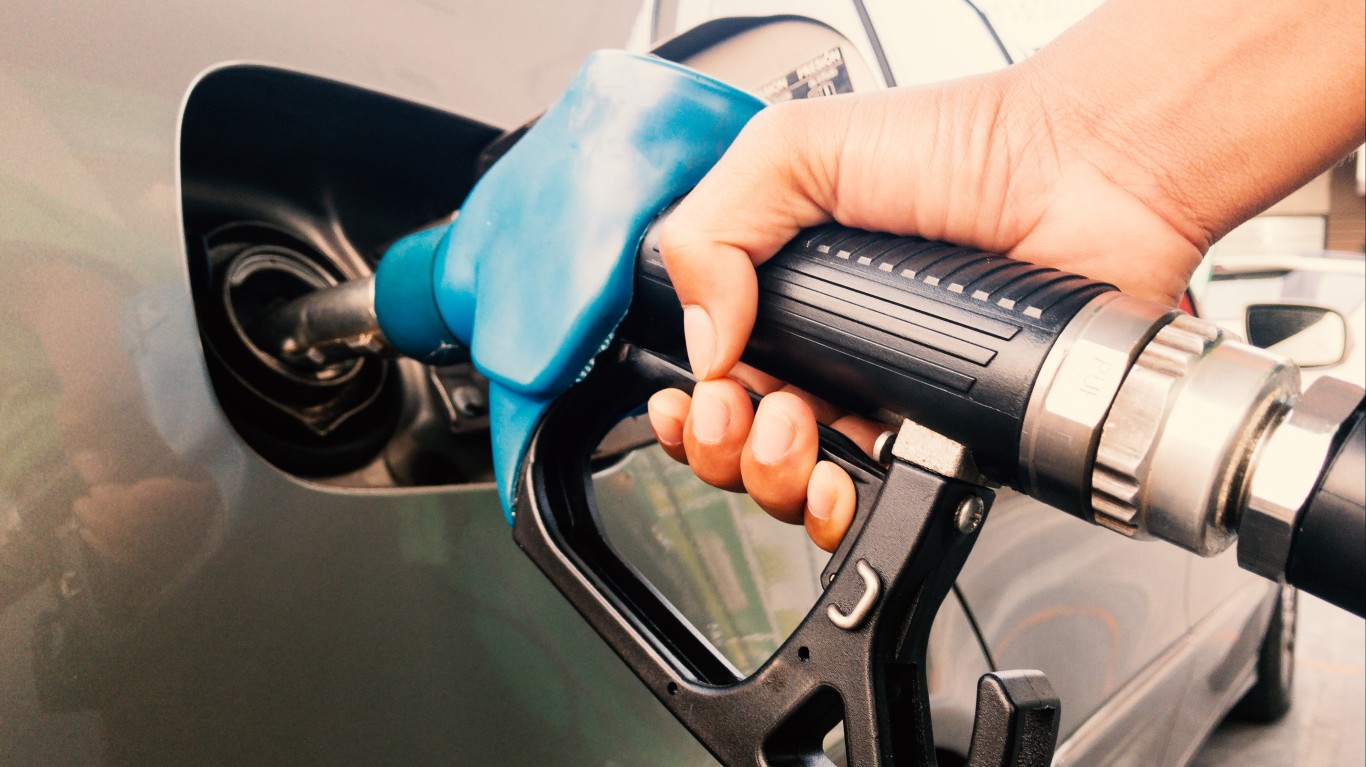
The best predictor of gasoline prices is oil prices. They almost always outweigh refinery costs, transportation costs and state gas taxes. Crude oil prices, which were $36 a barrel at the end of November, have risen to almost $58, the highest price in a year. Gas prices have started to follow. In two states, they have topped $3 a for a gallon of regular.
According to GasBuddy, the average price for a gallon of regular nationwide is $2.456. That is up from $2.322 a month ago. Over the past four weeks, the increase has been fairly steady.
[in-text-ad]
Oil prices have risen for two reasons, neither of which is likely to change soon. The first is that global stockpiles have fallen. World Oil recently said of crude inventories:
Crude inventories at a key storage hub in the U.S. are now below their five-year average, and nationwide inventories continue to slump, an early indication that Saudi Arabia and allied producers are succeeding in their efforts to eliminate a glut.
The other factor has been called “post-vaccine euphoria.” The base of this is that the economy has already started to spring back from the COVID-19 pandemic. If the rate of vaccine distribution quickens, global economies will reopen and gross domestic product and employment will surge, and with these, the demand for oil.
Gas prices by state are either above or below the national average for several reasons. The first is proximity to refineries. States near the huge refineries along the Gulf of Mexico tend to have the lowest prices in the country. Notably, the four states with the lowest per-gallon gas prices are Mississippi ($2.13), Texas ($2.14), Oklahoma ($2.14) and Louisiana ($2.17). The transportation costs from refineries to nearby areas shaves the average price of gas down, compared with much of the rest of the nation.
Another primary factor is gasoline taxes. According to the American Petroleum Institute survey of state gas taxes as of January 1, the U.S. average is $0.5523 a gallon. States with low gas taxes include Missouri ($0.3582), Mississippi ($0.3719) and New Mexico ($0.3738). The states with the highest gas taxes are California ($0.8145) and Pennsylvania ($0.7710). These are the states with the highest gas taxes in America.
Two states currently have average prices for a gallon of regular of over $3. California’s $3.452 price is clearly affected by its gas tax. In Hawaii, the price of $3.288 is affected by a relatively high gas tax at $0.6524 per gallon. However, the cost of transportation to islands that are 2,500 miles from the west coast is also a major contributor to Hawaii’s price.
Gas prices nationwide were last at $3 a gallon in 2014. There is still a long way to go before prices reach that level again. However, crude prices are on a sharp climb upward, which means gas prices will continue to increase, for now, as well. Moreover, gas prices can affect overall living costs in some places. This is the cost of living in every state in America.
Travel Cards Are Getting Too Good To Ignore (sponsored)
Credit card companies are pulling out all the stops, with the issuers are offering insane travel rewards and perks.
We’re talking huge sign-up bonuses, points on every purchase, and benefits like lounge access, travel credits, and free hotel nights. For travelers, these rewards can add up to thousands of dollars in flights, upgrades, and luxury experiences every year.
It’s like getting paid to travel — and it’s available to qualified borrowers who know where to look.
We’ve rounded up some of the best travel credit cards on the market. Click here to see the list. Don’t miss these offers — they won’t be this good forever.
Thank you for reading! Have some feedback for us?
Contact the 24/7 Wall St. editorial team.
 24/7 Wall St.
24/7 Wall St.



